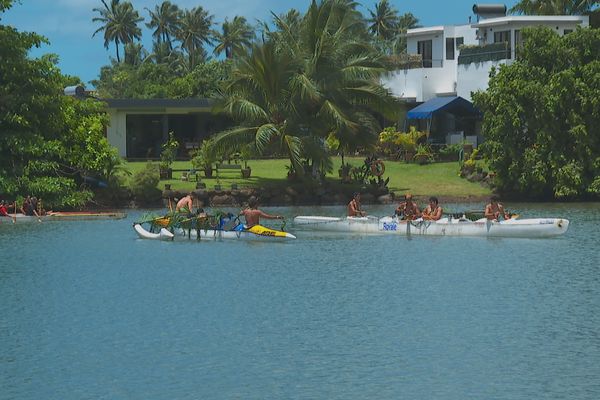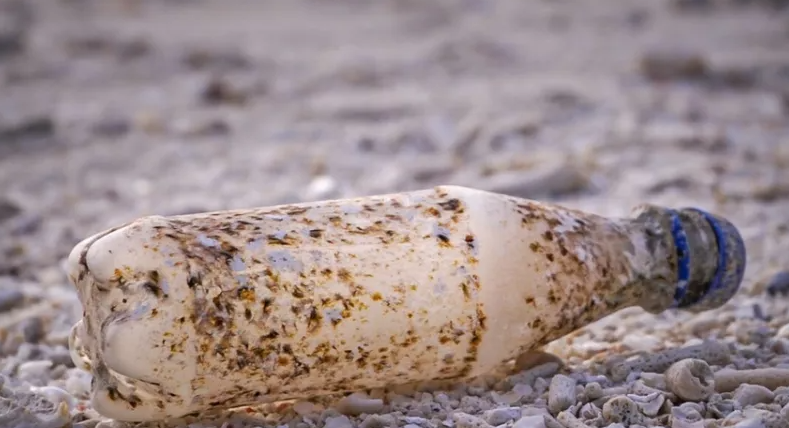The ancient practice is experiencing a revival across Polynesia, particularly through the rahui, or fishing ban. In Taravao, it is now aimed at saving species like the hammerhead sharks from extinction. According to experts familiar with the area, these sharks come to reproduce in the Phaëton Bay. Environmental protection associations, education stakeholders, and the mayors of the Tereheamanu community are in favor of this initiative.
This Tuesday morning, Phaëton Bay presents a dual reality. On the surface, there are joyful outrigger canoes, while beneath the water, marine life is in grave danger. A cultural ceremony, resembling a rescue plan, is in the works. « There are several projects, but I will speak for our project with my aquaculture class. It’s about preserving Phaëton Bay, especially the hammerhead sharks right there, near the ceremony site, » explains Vaihei Paepaetaata, a socio-cultural education teacher at John Doom Agricultural High School.
In the audience are young, deeply committed individuals who grew up here and have witnessed the degradation of the water quality over time. « We discovered that Phaëton Bay is heavily polluted by nearby businesses. Paihoro (the waste treatment center) is just next door and contributes significantly to the pollution… Some businesses don’t follow hygiene standards and dump their waste into the bay, worsening the situation, » observed Toimata Lucas and Aniki Sanford, students in the first-year aquaculture production class.
To address overfishing in the area, a rahui (regulated fishing zone) is being proposed, a measure unanimously supported by the mayors of the west coast. « If we, the five municipalities—Papara, Teva i Uta, Taiarapu East, Taiarapu West, and Hitia’a o te ra—are united, it’s to rethink the development of our region. We’re looking towards Taravao, without forgetting Papeete, but Afaahiti-Taravao is our focal point. From there, how do we create an economy, how do we build a society that respects our differences, our culture, and our nature, and allows us to live happily in an area that needs development? » said Tearii Alpha, mayor of Teva I Uta.
Nearby, birds nest in the trees, but some species are endangered, like the striated heron. Only nine pairs remain near the bay. « We could also include the Tahiti petrel, noha, a protected species often threatened by light pollution and predation by cats and rats. The same goes for the heron; predation by cats and rats is an issue, in addition to deforestation, » explained Maya Mehau, assistant director at the Polynesian Ornithological Society.
The goal is to transform Phaëton Bay into a sanctuary for hammerhead sharks, a viviparous species facing extinction. The rahui could begin in September, the start of the breeding season. In November, the females give birth to between 4 and 16 baby sharks.
Source: francetvinfo




